| LATEST NEWS |
Hard, hot but not all 'hell'
June 17, 2012

Life inside ... inmates and guards paint a canvas on Art Expression Day.
It is just as well known as Bali's surf beaches and ancient temples, but Kerobokan jail is a part of the holiday island that few visitors ever get to see.
These photos offer a rare glimpse of daily life inside the jail, home to Australians including Schapelle Corby and members of the so-called Bali Nine.
They were taken by Lizzie Love, an Australian expatriate who has worked as a volunteer inside the prison for the past two years with a small band of women known as the Lipstick Brigade. She has released the pictures exclusively to The Sun-Herald to show that conditions inside the jail are quite different from its reputation.

Lizzie Love and Renae Lawrence deliver a stereo.
''Why is it always described as a hellhole?'' she asks. ''I'm not saying it's paradise in there. It isn't. It's hot, it's overcrowded and there is violence.
''But the efforts that the prison authorities go to, towards rehabilitating people and providing opportunities for reform, should be acknowledged because they are making a difference to the prisoners' lives.''
She says the negative portrayal of the jail could affect claims for clemency from Australian inmates.

The Lipstick Brigade's Mari dances with Andrew Chan at a wedding in the jail.
The 1000 inmates at Kerobokan have much more freedom than inmates elsewhere around the world. While they are locked in their cells from 5pm to 8am, most prisoners are free to do as they please during the day.
Prison authorities and volunteer groups such as Love's Lipstick Brigade provide a variety of activities for male and female prisoners, with the aim of providing them with skills to find legitimate work when they leave.
Lizzie McLean, a former Sydney high school teacher who volunteers with Love, agrees the jail has its flaws - overcrowding being one of the worst - but prisoners are treated well.
''If I had to go to jail, I would rather be here than in Australia,'' she says.
''The physical conditions are not great but, that said, it's a lot freer than a Western jail. There is a lot of interaction between the prisoners and there are a lot of programs they can do, which will improve their chances once they leave jail.''
Prisoners can choose creative activities - such as sewing and pattern-making, art and dancing - or improve their employment prospects with a course in reflexology.
Many inmates grow vegetables in the prison grounds and cooking classes led to the establishment of a canteen in the women's block, which is run as a business, feeding both prisoners and visitors to the jail.
Male prisoners, who outnumber female inmates nine to one, have even greater freedoms, with access to a gym, tennis court and soccer field. They have helped to build dog kennels for an assistance dog training program that Love has been trying to establish in the jail.
Medical facilities are basic but accessible, with a dental clinic and a doctor on site, and a methadone program available for those who are trying to kick heroin habits.
Prisoners have access to a library, religious services from a number of faiths and philosophy classes.
Far from being cut off from the outside world, they have computers, wi-fi, television and DVD players.
Some inmates - including Bali Nine members Myuran Sukumaran and Andrew Chan - are taking university courses.
Sukumaran, 31, and Chan, 28, both face the death penalty for their part in the 2005 trafficking operation to smuggle a total of 8.4 kilograms of heroin into Australia. Lawyers for Chan have lodged an appeal for clemency with the Indonesian President, Susilo Bambang Yudhoyono, while the deadline for Sukumaran's appeal is next month.
Love speaks highly of both men, noting how they have transformed their lives over the past few years.
Sukumaran is undertaking a fine arts degree, while Chan is taking religious studies.
Both men are involved in many of the courses run inside the jail, including drug counselling.
''Those are responsible for improving conditions at Kerobokan,'' Love says.
''When an opportunity to rehabilitate is given, as it is in Kerobokan, then people actually can and do change their lives.
''Andrew and Myuran are just remarkable. They're on death row and every day they get up drug-free and go to work.
''Andrew goes off to give his anti-drug talks to other prisoners. Myuran is in there shovelling dirt to build dog kennels for the assistance dog program we were trying to establish. He organises for teachers to come in, for computers to be fixed, every day. That's what they do.''
The way Kerobokan is depicted in Australia is not only false but may damage Chan and Sukumaran's chances of clemency, says Love, who has lived in Bali for nine years.
''The Indonesians don't like to be seen as a beggar nation,'' she says.
''This is a notorious jail, but there has been an effort to look after prisoners in a humane way … That shows that it is a progressive jail. They like to be seen that way. They want to be seen as humane.''
Clarification: Lizzie Love did not receive payment for supplying Fairfax Media with her photographs from inside Kerobokan.
Original story here
|
|
MORE than 600 South African drug mules and drug traffickers are in foreign jails. Almost half of these are in jails in South America.
They are being detained, pending investigation by South African and Brazilian authorities. Two of the five were allegedly found in possession of a total of 21kg of cocaine destined for the South Africa market.
The latest recorded figures from the Department of International Relations reveal that 619 South Africans have
Article rank 20 Mar 2011 Sunday Tribune NIYANTA SINGH informed consulates that they are in foreign jails for drug trafficking. But department officials said at least twice as many people did not inform embassies, meaning the likely figure was well over 1 500.
South America is regarded as a drug capital, as 90 percent of the world’s cocaine supply is derived from there.
Colonel Devon Naicker, head of the narcotics division in the Directorate for Priority Crime Investigation, said South
Africans from all race groups were serving jail terms abroad for drug trafficking. The highest concentration was in
South America, particularly in Sao Paulo and Buenos Aires. Naicker said a relatively new country involved in drug
trafficking was Mauritius, with a ready supply of heroin. There are about 30 South African drug mules imprisoned in
Mauritius.
Neighbouring states in the past three years, said Naicker, had gone from being transit routes to major drug
markets, boosting South Africa’s role as a drug trafficking hub.
Naicker said a 32-year-old SA cocaine mule was murdered in Peru last week, shortly after being paroled.
Another died in a Brazilian jail this month.
Although aircraft passengers remained the most common method of drug smuggling, West African gangs –
“predominantly Nigerian networks” – were targeting air crew, often offering three times the person’s salary for one
delivery.
He said vulnerable people, desperate for a job, were also targeted. “A person is promised a job… promised a
ticket to one destination, then rerouted and asked to fetch a parcel. By that time the person is already so involved,
they feel threatened or desperate, and go along with the plan. When they arrive at their destination, they are met
by someone and later given a suitcase with instructions… at this stage the person knows exactly what is going on.
Whether they have the option to opt out, we don’t know. As a courier, a person can earn, depending on the
amount of drugs they bring into the country, about R70 000 a time. Most of the drugs come in through our
international airports in Durban, Johannesburg and Cape Town, and are destined for those major cities as well as
the smaller ones.”
Naicker said the maritime industry was also exploited in the drug trade. “Drugs from China, Senegal, Pakistan,
India and other hubs come in ships hidden in containers in huge amounts. Recently, we found more than seven
tons of cocaine in a fishing vessel.”
Another modus operandi was girls being lured by men on Facebook. “These men chat with them, become
friends, gain the girls’ trust, and then use them as drug mules to smuggle narcotics.” Most of the recruiters are
from Nigeria and South Africa.
“The men offer the girls paid holidays to Japan, China, or South America, asking the girls to carry bags or
packages… we are advising these internet-savvy, university-aged girls to think before accepting such holidays and
gifts. Such things always come with strings attached.”
A month ago, Naicker said, they discovered a transaction involving 20 people recruited in South Africa, to
transport 20kg of dagga each to the UK. Ten of them were arrested.
Annette Hübschle, a senior researcher at the Institute for Security Studies, said an “explosion” in the use of
hard drugs in neighbouring countries had boosted drug volumes moving through South Africa.
“It’s a remarkably sudden and distinct trend: countries to the west, including Namibia and Angola, have
developed markets for cocaine, and eastern countries, especially Tanzania, Mozambique and Mauritius, are now
heroin-use countries,” she said.
Locked Up In A Foreign Country, a section 21 company, was started last year to draw attention to people
imprisoned in foreign countries, after being used to transport drugs across international borders.
Founder Belinda West started the company after a friend was arrested in Venezuela last year.
“We keep in touch with families of people in prison overseas, we offer emotional support and advice.”
Patricia Gerber, the mother of Johann Gerber, a drug mule serving an 11-year sentence in Mauritius, has
become involved in the company by trying to initiate a prisoner transfer agreement.
Gerber has even brought an application against the SA government for its failure to consider her request that
the government enter into a prisoner exchange agreement with the Mauritian government, alternatively to provide
sufficient reasons for its decision.
  
The case was recently dismissed in the Constitutional Court.
Printed and distributed by NewpaperDirect | www.newspaperdirect.com, US/Can: 1.877.980.4040, Intern: 800.6364.6364 | Copyright and protected by applicable law.
Prisoner Transfer Agreement for South Africa

|
Bali prison riot ends as police move in
Michael Bachelard in Indonesia
February 22, 2012 - 1:22PM

Click to play video
Riots in Bali jail holding Australians
Inmates have taken over Bali's Kerobokan prison as police appear ready to storm the jail.
Police have reclaimed control of Bali's infamous Kerobokan prison, which last night erupted in rioting as prisoners set fire to parts of the desperately overcrowded facility and hurled stones at staff.
Hundreds of riot police, some from the elite paramilitary wing, gathered shortly before dawn around the perimeter of the grounds and moved in as the sun rose, apparently first firing warning shots in the air.
At least three injured people were removed by ambulances, with rumours suggesting police used rubber bullets to subdue the rioters.

'Under control' ... Police outside the Kerobokan jail, where inmates are said to have been overpowered. Photo: Amilia Rosa
This website understands all 12 Australian prisoners in Kerobokan, including Schapelle Corby and the Bali Nine, were unhurt during the riot and subsequent police action. The Department of Foreign Affairs and Trade has confirmed that all are safe.
A local source said male "foreigners" had been kept safe in the prison's tower, while the women's prison was untouched by the riot.
The prison is now under the control of the police and in lockdown, while prison officials and staff are yet to make an official statement.

Rioting ... Prison guards earlier abandoned the jail as violence erupted. Photo: Amilia Rosa
Fairfax reporter Amilia Rosa said staff and police were now taking a head count of more than 1000 prisoners crammed into the facility, which was designed to house just over 300.
They are checking the extent of the fire damage to property and records.
Prison staff last night abandoned the prison after the riots broke out. It remains unclear whether the Australians were involved in the riot.

Burning (left) ... Firefighters are trying to bring fires under control inside the facility. Photo: Erwin Jo
Earlier, Rosa said the shots appeared to come from the sides and back of the prison as authorities waited outside the grounds.
The riot began about 11pm and may be related to a smaller incident on Sunday afternoon, which flared after an inmate was stabbed and three others arrested.
By 5.15am local time, a contingent was massing in front of the facility, apparently in preparation for an assault to try to take back the prison from the rioters.

Tear gas (right).... Police massed outside the jail. Photo: Amilia Rosa
Paramilitary police from Indonesia's highly trained "brigadier mobile" unit were among the police and prison guards massing outside the yard. The police were carrying AK-47 rifles and what appeared to be tear-gas guns.
Rosa said firefighters had battled to control blazes inside the prison, with furniture, equipment and window frames burnt.
Rosa said she had overheard police discussing storming the prison after the sun rose.

Damage (left) ... Bali's Kerobokan jail is lit up by fire. Photo: Erwin Jo
She said that, as the sky began to lighten, she could see police wearing bullet-proof vests and helmets, and carrying shields, machineguns, batons and tear-gas guns.
"Consular staff are liaising with local authorities and seeking to contact the Australians," a spokeswoman for the Department of Foreign Affairs and Trade said earlier.
Michael Chan, the brother of Bali Nine member Andrew Chan, told Fairfax he was very worried about his brother's welfare inside the prison, but had been unable to contact him. He said that, after a similar riot about four months ago, "things got pretty bad, and they were in lockdown for a couple of days".
This incident looked to be at least on that scale, he said. Mr Chan will fly out to Bali this afternoon on a planned trip to see his brother.
Consular officials told Corby's sister Mercedes - who lives in Bali with her husband Wayan - that the convicted drug trafficker was well and healthy.
Wayan told Fairfax that he had been at the prison during the night and that the women's block, where Corby and Bali Nine member Renae Lawrence are housed, had been untouched by the rioting.
"I am cautiously hopeful that things will be OK," Mercedes Corby told Fairfax.
However, after unrest such as this, the family expected the prison to go into lockdown, which meant no visits from outside.
Read more
|
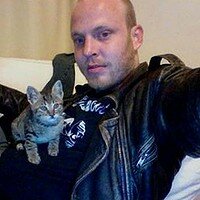
Egypt frees Australian journalist
February 14, 2012
An Australian journalist, a US student and their Egyptian translator have been freed after two days in detention on suspicion of paying Egyptians to stage protests against the authorities, a security official says.
Freelance reporter Austin Mackell, 28, from NSW, was detained with American student Derek Ludovici and translator Aliya Alwi in the Nile Delta city of Mahalla on Saturday, the same day activists held student strikes to mark the first anniversary of president Hosni Mubarak's overthrow.
"They have just been released and are on their way from Mahalla to Cairo," the official said on Monday. Veteran Egyptian labour activist Kamal al-Fayyumi and a driver who was with them were also released, the official said.
General Mostafa Baz, police chief of the northern Gharbiya province, had told reporters the Australian, the American and their translator were suspected of having co-ordinated over the internet to meet in Mahalla, which has a history of labour strikes, to "incite people to protest".
A security official said people in Mahalla had complained to police that all three were paying people to protest. The authorities have in the past blamed foreigners for plotting unrest.
Alwi said on her Twitter account that they were being charged with inciting protests and vandalism.
"Witnesses have been produced to confirm it," she wrote. "Report against us, filed now. Many witnesses saw us 'offering money to youth to vandalise and cause chaos'."
She later tweeted that they were being handed over to intelligence services.
"[Mackell] has confirmed he is being treated appropriately by local police authorities. He confirmed his intention to engage a legal representative," an Australian foreign office spokeswoman said on Saturday.
The authorities, including the ruling military that took charge after Mubarak's ouster, have accused foreigners of stirring unrest in Egypt, which has seen a spate of deadly protests over past months.
In June, security forces arrested a US-Israeli citizen they accused of spying and inciting Egyptians to protest. The man was released in October in a prisoners exchange deal.
AFP
|
| Bali teen home |
The 14-year-old Lake Macquarie boy who spent two months in detention in Bali on drug charges has arrived home. He flew into Sydney Airport from Denpasar this morning, dodging waiting media.
 |
The boy, who lives at Morisset Park and is a student at Morisset High, was held in the Jimbaran detention centre for buying 3.6g of marijuana on the street in Kuta on October 4.
Before leaving Indonesia he completed paperwork at the Kerobokan Prison, where he was also fingerprinted and photographed, and was then sent to the immigration office at Denpasar airport.
A media scrum has been following the teenager wherever he goes, but he continues to disguise his identity with a balaclava and refuse to answer questions.
The Nine Network has denied making a deal worth hundreds of thousands of dollars with the boy's family for exclusive rights to their story.
The charges the boy faced carried a sentence of up to two years' jail, but prosecutors requested three months.
The judge reduced the sentence further, to two months, which with time served meant the boy would be home before Christmas.
The teen's lawyer, Mohammad Rifan, says his client is "so happy" to be going home.
He says the boy is hoping his experience sends a message to other Australians.
"Many people, or many boys in Australia, may have some mistakes like him," Mr Rifan said.
"He wants this to be a warning to the Australian boys not to continue or do something stupid like that."
It's now up to the boy's family to decide whether to enter him into a rehabilitation program.
|
| Aussie Jock Palfreeman in Bulgaria appeals |
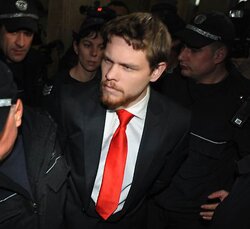 AUSTRALIAN Jock Palfreeman and his family face an agonising 30-day wait for a Bulgarian court to hand down its decision in an appeal against his murder conviction. AUSTRALIAN Jock Palfreeman and his family face an agonising 30-day wait for a Bulgarian court to hand down its decision in an appeal against his murder conviction.
Palfreeman's defense team has vowed to continue its fight if an appeal against a life sentence fails.
The parents of a man killed in a fight with Palfreeman in 2007 told the Sofia appeals court that it could be held responsible if it overturned the verdict and Palfreeman murdered again upon his release.
In his closing argument at the appeal Wednesday, Palfreeman told the court that his trial had been marked by "intrigue, rumors, myths and legends."
The 24-year-old was sentenced to 20 years in jail in December 2009 for fatally stabbing one man and wounding another during a street brawl in the Bulgarian capital Sofia.
|
Monday, September 5, 2011
TWO AUSTRALIANS ARRESTED IN PORTUGAL IN EFFORT TO SMUGGLE RHINO HORNS ABROAD
Two Australian nationals, father and sons, ages 63 and 31, respectively, were arrested in Portugal last week for allegedly attempting to fly six rhino horns valued at US$565,000 out of the country in their checked luggage. Click here
Herald Sun Report Click here
|
| Robert Langdon spared the noose |
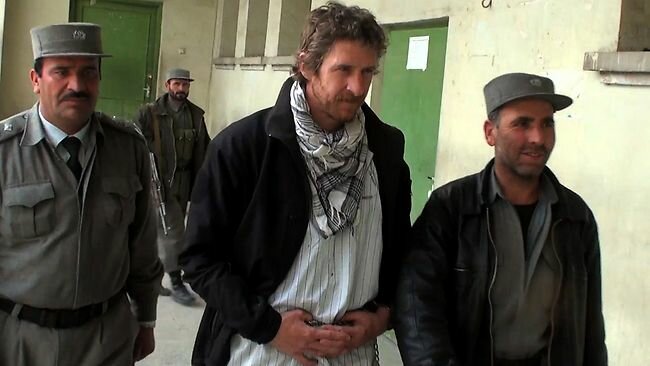
Robert Langdon is escorted to a court room at the Kabul Central Prison in Afghanistan in January last year. Picture: The Australian Source: The Australian
|
SOUTH Australian death-row prisoner Robert Langdon has been spared the death penalty by an Afghanistan court.
The former Far-North man will instead be jailed for decades, sentenced to 20 years in a decision his lawyer has branded "a virtual death sentence".
It was revealed last night that Langdon, 38, a security contractor and former Australian Army soldier, was sentenced in a secret hearing by the Supreme Court in October last year.
His health had seriously declined after October 2009, when an Afghan court found him guilty of murdering a fellow security contractor in May 2009 and sentenced him to death by hanging. He has always maintained that he shot the man in self-defence.
Mr Langdon is in Pol-e-Charkhi prison, which his Adelaide lawyer, Stephen Kenny, said last night was "the equivalent of a death sentence".
Mr Langdon's current state of health is not known.
Mr Kenny told The Advertiser he had not been officially contacted by the Afghan courts to confirm the decision.
"I have not spoken to him (Langdon) yet, but we would be very concerned about a 20-year prison sentence in Afghanistan," he said.
Mr Kenny refused to rule out the possibility of appealing against the decision.
"We will need to look at what has happened. What our options are, and the possible outcomes of those."
Mr Langdon's family, who live in Port Augusta, declined to comment last night.
|
| Accused meth smuggler launches defence in Bali |
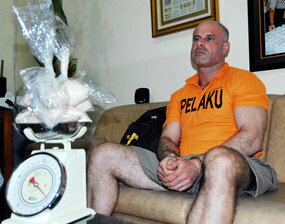
Michael Sacatides |
Australian man Michael Sacatides, accused of smuggling methamphetamines into Bali, has denied the accusation at a court hearing in Denpasar. (AFP: Sonny Tumbelaka )
Michael Sacatides, the Australian man accused of smuggling methamphetamines into Bali, has denied the accusation at a court hearing in Denpasar.
Sacatides has been tight lipped since he was arrested at Bali's international airport with 1.7 kilograms of methamphetamine concealed in the lining of his suitcase.
On trial and facing a possible death penalty if convicted, he made his defence on Wednesday saying simply that the accusations from the prosecutor are not correct.
He claims he borrowed the case from an Indian friend before leaving his home in Bangkok.
His lawyer repeated that defence, and said his client had approached the customs officials at the airport without hesitation because he did not know he was carrying the drugs.
He says Sacatides is the victim of a drug syndicate.
|
| The Condemned - Myuran Sukumaran & Andrew Chan |
 From SBS Dateline - Back in April 2005, Indonesian authorities in Bali swooped on a heroin trafficking ring that netted nine young Australians, in the five and a half years since then, the now infamous 'Bali Nine' have scarcely been out of the news. Two of the nine, Andrew Chan and Myuran Sukumaran, were subsequently sentenced to death. Scott Rush received the same sentence after lodging an appeal against a life sentence, and currently all three are appealing death penalties. After months of careful negotiations with their lawyers and Indonesian authorities 'Dateline's Mark Davis secured unprecedented and quite intimate access to Andrew Chan, and Myuran Sukumaran, on Death row in Bali, the first time anyone has been permitted to film there. Here is Mark's special report. From SBS Dateline - Back in April 2005, Indonesian authorities in Bali swooped on a heroin trafficking ring that netted nine young Australians, in the five and a half years since then, the now infamous 'Bali Nine' have scarcely been out of the news. Two of the nine, Andrew Chan and Myuran Sukumaran, were subsequently sentenced to death. Scott Rush received the same sentence after lodging an appeal against a life sentence, and currently all three are appealing death penalties. After months of careful negotiations with their lawyers and Indonesian authorities 'Dateline's Mark Davis secured unprecedented and quite intimate access to Andrew Chan, and Myuran Sukumaran, on Death row in Bali, the first time anyone has been permitted to film there. Here is Mark's special report.
|
| Australian man accused of Afghan bribes |
AN Australian construction manager has been detained in India for allegedly taking a $US190,000 bribe to allow a subcontractor to build a hospital and college in Afghanistan.
Neil P Campbell was indicted on August 19 by a federal grand jury in Washington, DC, on the charge of receiving a bribe while working for an organisation receiving US government funds, a US Department of Justice statement said.
"This arrest serves as a strong warning to all who defraud the US in Afghanistan that they will be found and held accountable, regardless of citizenship," said Arnold Fields, special inspector general for Afghanistan reconstruction.
Campbell was arrested in New Delhi on Wednesday by agents of the Indian Central Bureau of Investigation. He faces extradition from India to the United States.
Australia's Department of Foreign Affairs and Trade said an Australian man was detained on arrival at the Indira Gandhi International Airport.
The department could not confirm it was Campbell because of Australian privacy laws.
"Consular officers are seeking to provide consular assistance to the man," it said in a statement.
|
| Lawyer Stephen Kenny hailed for pro bono work |

Stephen Kenny
|
A lawyer who defended David Hicks against the US military and who regularly works pro bono for refugees, asylum seekers and native title groups has been recognised for helping the disadvantaged.
Adelaide lawyer Stephen Kenny has won the Law Society of South Australia's justice award for 2010.
Society president Richard Mellows said Mr Kenny should be praised for his selfless dedication and passion for helping others in the community.
"While Mr Kenny will be known for his pro bono representation of David Hicks, the award also recognised his tireless efforts on behalf of other socially and economically disadvantaged members of our community," the society said in a statement.
Mr Kenny was the first Australian lawyer to represent Hicks after he was detained by the US military in Afghanistan and taken to Guantanamo Bay.
He has also acted for refugees and as the legal adviser to the Foreign Prisoner Support Services which works to help Australians imprisoned in various countries around the world.
|
| Rush case rekindles memories of past executions |
Bali Nine drug smuggler Scott Rush launched his last court appeal against the death penalty in Bali last week.
His argument rests on the fact he was not a major player in the ring and, therefore, does not deserve to die.
ABC Indonesia correspondent Matt Brown was in the court and found himself thinking about the lives he has seen lost and past court-ordered executions.
When I was in high school, it was Barlow and Chambers; in 1986 Charles John Barlow and Brian Geoffrey Chambers were the first Australians executed under tough anti-drug laws in Malaysia.
The campaign to save them was long and vigorous, the public debate about their fate, intense.
|
| Singapore arrests author of death penalty book |
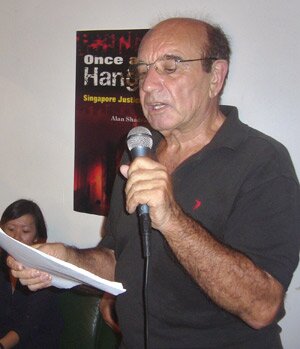
British author Alan Shadrake speaks during the launch of his book Once a Jolly Hangman in Singapore on Saturday. Singapore police arrested him Sunday. (Jacob George/Sunday) |
British author Alan Shadrake speaks during the launch of his book Once a Jolly Hangman in Singapore on Saturday. Singapore police arrested him Sunday. (Jacob George/Sunday) A British author who wrote a book critical of Singapore's death penalty has been arrested while touring with his book in the city state.
Alan Shadrake, a journalist who divides his time between Britain and Malaysia, has been charged with criminal defamation, which carries a penalty of up to two years in jail.
Singapore prosecutors are also considering laying charges of contempt of court on the grounds that Shadrake questioned the impartiality, integrity and independence of the judiciary.
Shadrake's book, Once a Jolly Hangman — Singapore Justice in the Dock, includes an interview with Darsan Singh, Singapore's hangman for the last 50 years.
It also investigates high-profile criminal cases that ended in the death penalty, which Singapore imposes for murder, treason, drug trafficking and other crimes. He interviewed police, lawyers and human rights activists, as well as the families of some of those hanged.
Singapore's Media Department said the book has not been banned in the city state, but that bookstores would be advised not to carry it.
Shadrake, 75, told reporters before his arrest Sunday that he was expecting trouble when he attended an event Saturday to promote his book.
"If they do anything, it'll just draw more attention to it all, and they have no defence," he told AFP news agency.
|
| Bethune still seeking justice |
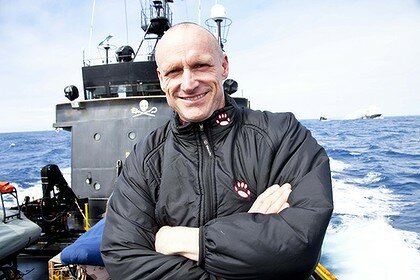
Pete Bethune ... returning home. Photo: Barbara Veiga/Sea Shepherd |
New Zealand environmental activist Peter Bethune is relieved to be returning home to Auckland but is continuing his call for the Australian and New Zealand governments to seek justice from Japanese whalers.
Bethune, 45, was handed a suspended two-year jail sentence in Tokyo on Wednesday after he was convicted of assaulting a Japanese whaler and four other charges relating to clashes with whalers in Antarctic waters.
In a statement issued after his sentencing, Bethune said he still wanted justice.
"I strongly urge the Australian and New Zealand maritime authorities to continue putting pressure on the Japanese whalers to co-operate with their investigations into the collision," he said, referring to his boat's collision with a Japanese whaling vessel in January.
"I am very relieved and thankful at the decision from the Japanese court and immensely grateful to my legal team here in Japan.
"I am truly sorry for all the trouble and worry this has caused my family and am desperate to get back home to see them."
Bethune was arrested on February 15 when he boarded the Japanese whaling fleet's security ship, the Shonan Maru II, to make a citizen's arrest of its captain.
"All I did was to board the boat that I feel deliberately attacked and sunk my vessel," Bethune said in his statement.
"I wanted justice for the loss of my boat and the attempted murder of my crew."
Bethune was captain of the futuristic trimaran Ady Gil, which sank after its collided with the Shonan Maru II on January 6.
He was convicted on Wednesday of assaulting a Japanese whaler by hurling a rancid butter stink bomb, relating to a February 11 incident, and four other charges relating to his boarding of the ship.
|
| Australian arrested in Bali over cocaine |
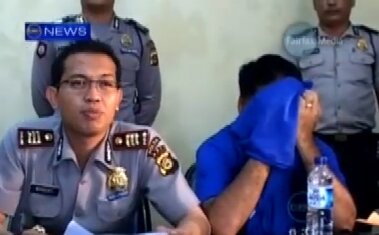
Australian Angus McCaskill has been caught with cocaine in Bali and faces the maximum penalty of 12 years in prison. |
AN AUSTRALIAN who has been living in Bali faces up to 12 years in prison after police allegedly caught him with 3.84 grams of cocaine.
Police presented Angus McCaskill, 57, a New Zealand-born Melbourne investment adviser, at a news conference yesterday, during which he covered his head to hide his face.
Mr McCaskill had been living in Seminyak, an upmarket district north of Kuta Beach, when police arrested him last Wednesday after allegedly receiving information from a local.
As he was led into the conference, Mr McCaskill told reporters he had made a ''silly mistake'' and told police he had used the drug for the first time the day before he was arrested.
''I'm very, very sorry,'' he said.
He told reporters he had been watching the World Cup and had drunk a lot. ''I was very, very drunk."
Police said they caught Mr McCaskill with six packets of cocaine in his wallet after they watched him walk into a supermarket in Tuban, near the international airport at the southern end of the island.
Police said they then took sniffer dogs to his villa but did not find any more drugs. They said a urine test confirmed that he had been using the drug.
|
| Australian released from Bali prison |
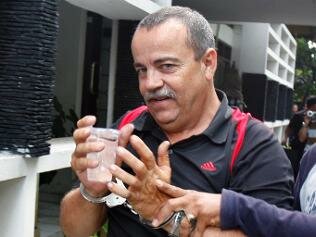
Australian Robert McJannett |
An Australian man has been released from a Bali prison after serving five months for drug offences.
Robert Paul McJannett was arrested at Denpasar airport on December 28 with 1.7 grams of marijuana in his luggage.
The 48-year-old Perth man initially claimed he was the victim of a set-up but later admitted the drugs were his.
The Denpasar District Court earlier this month sentenced him to five months' jail, including time already served, for drug use.
Kerobokan Prison official Made Suardana on Friday said McJannett had been released at about 10am local time.
|
| 18 Nigerians face execution in Indonesia |
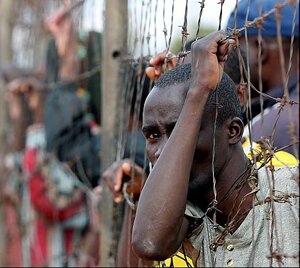 |
Eighteen Nigerians who were condemned to death by the Indonesian judiciary in 2008 for their alleged various criminal offences, including drug peddling and other related offences, may be executed in Indonesia between June and August, this year.
The convicts had been slated for execution in Indonesia on September 28, 2008, shortly after the Ramadan feast of Indonesians, but Nigeria’s high powered delegation, comprising the then Minister of Foreign Affairs, House of Representatives Committee on Diaspora and some Senators visited Indonesia and opened discussions between the Nigerian and Indonesian governments on the fate of the convicts.
The Indonesian government had condemned a total of 21 Nigerians to death, sentenced four to life imprisonment and eight others to various jail terms, ranging from 11 to 18 years.
Out of the 21 condemned Nigerians, two of them, Samuel Iwuchukwu Okoye, and Hassan Anthony Nwaolisa, had already been executed on June 28, 2008, while another, Augustine Celo Ogbonna, died in prison custody in September, 2008.
In a strongly worded petition to Hon. Abike Dabiri-Ewa, Chairman of House of Representatives Committee on Diaspora, dated April 22, 2010, a copy of which was made available to Daily Sun yesterday in Onitsha, Anambra State, an Onitsha-based human rights lawyer, Barrister Melly Chukwuemeka Eze, is appealing to the National Assembly to take concrete steps with a view to getting reprieve for the condemned Nigerians.
Eze, in the petition entitled: “Shocking revelation from Indonesian Prisons: Execution of 18 Nigerians scheduled for between June and August, 2010,” noted that most shockingly, he learnt from the prisoners that those on death row might be executed anytime between June and August this year if no further diplomatic efforts and pressure were mounted on Indonesian authorities.
According to Eze, “I have it on good and reliable authority that officials of Indonesian government who opened discussions with the Nigerian delegation are now expressing disappointment over an apparent display of unseriousness on the part of Nigerian government over the diplomatic move already initiated by Nigerian government officials”.
The human rights lawyer recalled that his earlier petition to the Presidency, National Assembly and the Foreign Affairs Ministry in October, 2008 in respect of the 18 Nigerians on death row and others serving various jail terms in Indonesia had attracted reactions from Senator Uche Chukwumerije, who moved a motion on the floor of the Senate to that effect.
|
| Charity Programme Brings Kerobokan Prisoners Dental Care |
KEROBOKAN prisoners this week received dental treatment from a team of 10 dentistry students and four qualified dentists who went to the jail as volunteers under a programme organised by the Bali International Women? Association (BIWA) and its Australian-funded mobile dental clinic.
In a four-hour visit on Monday the team treated 112 inmates, 75 of them women. Three of those treated were foreigners.
BIWA charity programme aims to provide inmates with basic dental care and dental health education.
Only one government-employed dentist is available to treat the 663 prisoners currently in Kerobokan.
|
| Nigeria: Governor 'threatens to execute inmates' to ease prison congestion |
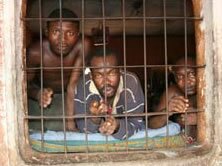 |
Amnesty International has condemned a reported move by Nigerian state governors to execute death row inmates to ease overcrowding and urged the authorities to instead address the underlying problems in the criminal justice system. According to media reports, Theadore Orji, governor of the south-eastern state of Abia, announced this after a meeting of 36 state governors in the country's capital Abuja on Tuesday. "More than three of every five prison inmates in Nigeria have not been convicted of any offence; instead they wait years for their trial in appalling conditions," said Aster van Kregten, Amnesty International's Nigeria researcher.
"It is shocking to suggest that executing prisoners is a way around this problem."
According to Nigeria's Minister of the Interior, the total prison population is 46,000, of which some 30,000 are awaiting trial. Few can afford a lawyer and the government funded Legal Aid Council only has around 100 lawyers. There are currently more than 870 death row inmates, including women and juveniles.
Amnesty International research shows that many death row prisoners may be innocent as Nigeria's justice system is riddled with flaws. Many have been sentenced to death after blatantly unfair trials.
Trials can take more than 10 years to conclude. Appeals in some death row cases have been pending for a decade. Some never happen because case files have been lost.
International law prohibits the use of the death penalty for crimes committed by people under the age of 18, yet in Nigeria juvenile offenders continue to be sentenced to death.
|
| Save Gaile Owens from execution |
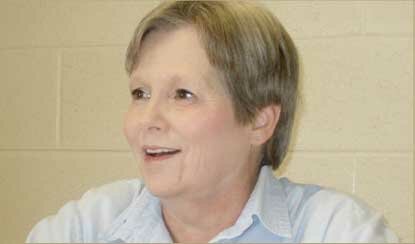 The Tennessee Supreme Court announced on April 19, that it has denied the commutation request, filed on Friday, Feb. 5, on behalf of Gaile Owens. Governor Phil Bredesen is now the only person who can decide to commute Gaile's sentence of the death penalty to life in prison. It is important now more than ever to show your support for Gaile. The Tennessee Supreme Court announced on April 19, that it has denied the commutation request, filed on Friday, Feb. 5, on behalf of Gaile Owens. Governor Phil Bredesen is now the only person who can decide to commute Gaile's sentence of the death penalty to life in prison. It is important now more than ever to show your support for Gaile.
Please make your voice heard by calling or writing Governor Phil Bredesen. Visit the learn more section for more information about what you can do to show your support.
Email us at and let us know what you are doing to support Gaile.
Creating a meaningful life for herself and others.
A valued adviser. A model prisoner.
Gaile is a battered woman on death row.
And she needs our support.

|
| Death Row Briton Linda Carty talks about her controversial conviction and how she is paying for someone else's crime |
Since losing what may well be her last appeal in September, Linda Carty has had to deal with a lot of unsettling comments.
'They've come both from other inmates and guards,' she says. 'I hear them asking, "How come she's still here? How come she hasn't been executed?" All I can do is ignore it.
'Since the appeal, they've moved me to a cell that feels like it's 115 degrees inside. My nose bleeds every day - sometimes I get through four T-shirts. The doctor said the reason is the heat.'
Carty, 51, who spoke last week to The Mail on Sunday in an extraordinary prison interview, is the only British citizen on death row in Texas, and if her pending last-ditch petition to the US Supreme Court fails, she could be dead within weeks.
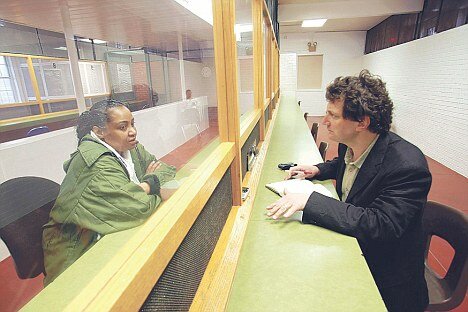
Linda Carty talks to David Rose about life on death row |
In 2002, she was convicted of ordering the kidnap and murder of Joana Rodriguez, 25, whose body was found in the boot of a car Carty had been leasing.
The reason for the murder, the prosecution alleged, was that she wanted to steal Rodriguez's four-day-old baby, who was unharmed.
Although Carty already had a grown-up daughter, she was alleged to have told her former partner, Jose Corona, that she was pregnant.
He had left her, and the phantom pregnancy was supposedly a ploy to get him back. Carty, a former teacher, has protested her innocence throughout.
Divided by a sheet of bulletproof glass, we meet in the echoing visiting room of the Mountain View Unit in the little town of Gatesville, four hours north-west of Houston. This is where Carty is locked up with Texas's eight other female death row inmates.
'I wake up at night and I wonder where I am,' she says. 'I look up to God and ask Him questions. "Why am I here? What was your reason for bringing me here?"'
Dressed in a T-shirt and prison overalls, at first she is composed, almost cheerful. But as we discuss the details of her case and its impact on the lives of her family, she soon becomes emotional, her eyes filled with tears.
It isn't hard to see why. The various state and federal judges who have considered Carty's case under America's labyrinthine death case appeals system have admitted that the defence at her trial was appalling.
There is no dispute that instead of spending days with Carty exploring every avenue that might have secured her acquittal, or at least preserved her life, her court-appointed lawyer, Houston's Jerry Guerinot, met her only once before the hearing started. They spoke for just 15 minutes.
|
| Aussie tourist on Phuket drugs rap |
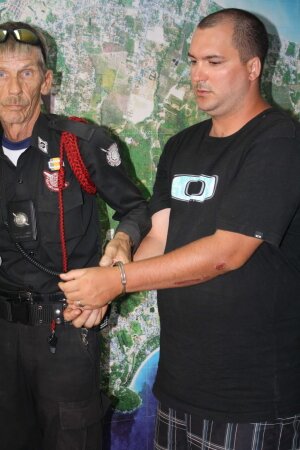
Australian Richard Beaver in handcuffs at Chalong Police Station in Phuket yesterday. |
CHALONG, PHUKET: -- An Australian tourist was one of five drug suspects paraded by Chalong Police at a press conference in Phuket yesterday afternoon.
Richard Beaver, 28, was allegedly caught with 0.9 grams of dry marijuana by police on Tuesday night.
Mr Beaver was stopped on Soi Samakee 2 off Saiyuan Road at around 11:30pm.
The tourist allegedly told police he bought the drugs for 500 baht from a Patong Beach dealer.
Mr Beaver arrived in Phuket on March 10 for a holiday and planned to stay on the island for one month.
Whether he makes it home within the planned time will now depend on how quickly a court hearing can be held.
Four Thais caught with small quantities of ya bah (crystal methamphetamine) were also paraded at the conference, which took place at Chalong Police Station.
Chalong Police Superintendent Wichit Intharasorn said his men were cracking down heavily on drug crime.
"Those involved with drugs should turn over a new leaf right away, before they get arrested and punished," he said.
Col Wichit warned that the punishment for serious drug crimes was execution.
|
| Stern Hu trial goes behind closed doors |
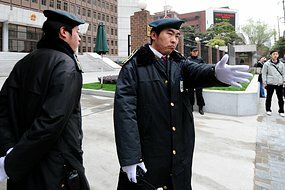
Shut out: the part of the trial relating to the commercial secrets charges is a closed session (AFP: Frederic Brown) |
The trial of Rio Tinto executive Stern Hu has now been shut to Australian officials as it enters its second phase in Shanghai.
Hu and three of his colleagues are facing bribery charges as well as charges of commercial espionage.
Yesterday, Hu and two of his colleagues admitted to some part of the bribery allegations.
The Australian consul-general to Shanghai, Tom Connor, says the second half of the trial will deal with allegations the team offered inducements to Chinese steel companies in return for commercial information.
"At the end of [this morning's] proceedings, the court declared that was the end of the proceedings related to the bribery charges," Mr Connor said.
"The session that would open this afternoon would be related to the commercial secrets charges, which would be a closed session of the court."
|
| Lao Defense Minister warns Hmong returnees of subversive elements |
Last Saturday, the Lao Minister of Defense, Lieutenant General Douangchay Phichit, paid a special visit to a group of 3000 Hmong returnees resettled in Phonkham village, Borikhan district, Borikhamxay province.
On February 15, the Lao government’s state-controlled newspaper Vientiane Times reported that the Defense Minister had called on faster progress in developing the resettlement village. The paper further stated that the Defense Minister “gave advice on the structure of the village’s administrative body. He called for continuous education of the people on Party and government policy, and to make them aware of the tactics employed by subversive elements.”
The Hmong returnees well understand this type of ambiguous language used by the Lao government. The term “subversive elements” refers to “General Vang Pao Hmong” or those who sided with the United States during the Vietnam War and who the Lao military continues to hunt down in remote jungle areas.
Earlier this year, western journalists had again visited remaining jungle groups in military-controlled Saysomboun Special Zone claiming that survivors reported recent Lao government attacks, which included the killing of an unarmed 14-year old boy who was out foraging for food. The Lao foreign ministry spokesperson continues to deny that any such jungle groups exist or that any such attacks take place. Instead, the government refers to these subversive elements as bandits.
|
| Iranian man arrested with 4.2 kgs of 'Ice' drug |
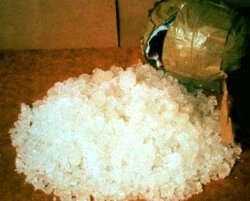 An Iranian man was arrested at Bangkok's Suvarnbhumi International Airport for smuggling 4.2 kilograms of ICE (crystal methamphetamine hydrochloride) worth Bt17 million into Thailand, police said Wednesday. An Iranian man was arrested at Bangkok's Suvarnbhumi International Airport for smuggling 4.2 kilograms of ICE (crystal methamphetamine hydrochloride) worth Bt17 million into Thailand, police said Wednesday.
Tipped off that some Iranians would smuggle narcotics into Thailand via the airport amid New Year holidays' tourists, Thai authority had been on a lookout and presented themselves Tuesday evening to search the Iranian suspect, Keyvan Ghannavatirajabnejad, 33, who had just arrived from Dubai. They found the bag of ICE hidden in his luggage's specially made compartment and apprehended him for legal prosecution.
Customs Department chief Somchai Sajjapong said that his office arrested 31 smugglers carrying more than 52 kilograms of narcotics last year.
|
| China and Britain clash over execution |
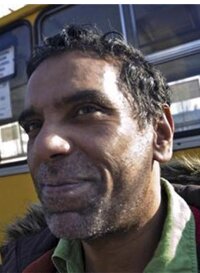
URUMQI, China (Reuters) - China executed a Briton on Tuesday caught smuggling heroin, prompting a British outcry over what it said was the lack of any mental health assessment. |
Beijing called the British criticism groundless interference in its judicial sovereignty.
Relatives of Akmal Shaikh, 53, and the British government had appealed for clemency, arguing the former businessman suffered from bipolar disorder, or manic depression. China's Supreme Court rejected the appeal, saying there was insufficient evidence of mental illness.
Shaikh was the first European citizen executed in China since 1951, Western rights groups say.
British Prime Minister Gordon Brown condemned the execution, carried out in Urumqi, capital of the far-west region of Xinjiang, saying he was "appalled and disappointed that our persistent requests for clemency have not been granted."
"I am particularly concerned that no mental health assessment was undertaken," he said in a statement.
British Foreign Office Minister Ivan Lewis summoned China's ambassador in London, Fu Ying, to protest at the execution.
"I made clear that the execution of Mr Shaikh was totally unacceptable and that China had failed in its basic human rights responsibilities in this case...," Lewis said in a statement after what he described as a "difficult conversation."
|
| Suspected Iranian Drug Smuggler Arrested in Bali |
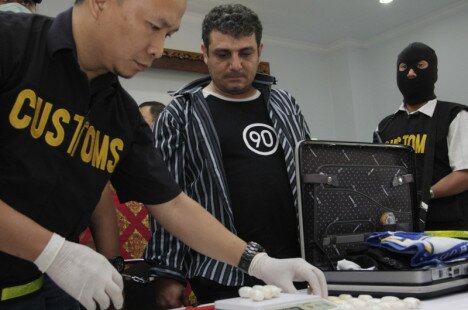
Shahbazi Saeid, center, with customs officers at Bali’s Ngurah Rai International Airport on Monday. (JG Photo/JP Christo) |
Denpasar. A 34-year-old Iranian man was arrested on Monday evening at Bali’s Ngurah Rai International Airport for attempting to smuggle more than 20 capsules of crystal methamphetamine into the country.
“The modus operandi and type of crystal methamphetamine is the same as that swallowed by seven Iranians arrested previously,” Chief Comr. Kokot Indarto, head of the Bali Police’s anti-narcotics unit, said at a news conference on Tuesday.
Early this month, Ngurah Rai customs officials arrested seven Iranians for attempting to smuggle drugs into the country by swallowing hundreds of methamphetamine-filled capsules. The drugs had a total street value of about Rp 4 billion ($420,000).
The suspect, identified as Shahbazi Saeid, arrived on a Qatar Airways flight on Monday evening in a group with eight other Iranians. Customs officials became suspicious when the group appeared nervous as they passed through the customs checkpoint. The Iranians were stopped and police took them to a hospital for CT scans.
“The results of the CT scans showed that only Shahbazi had cocoon-like capsules in his stomach,” said Faried Silby Barcea, the head of the customs office overseeing Bali and Nusa Tenggara.
Police found 22 capsules containing a total of about 200 grams of crystal methamphetamine, with an estimated street value of around Rp 400 million.
|
| Friends welcome Simon Mann's release |
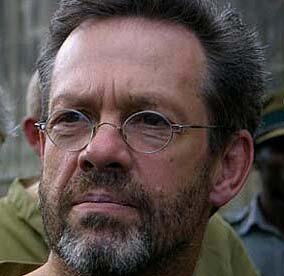 Alleged conspirators in the failed coup in Equatorial Guinea today welcomed Simon Mann's release as the Metropolitan Police confirmed it is continuing an investigation which could ultimately lead to some of them facing trial in British courts with Mann as a key prosecution witness. Alleged conspirators in the failed coup in Equatorial Guinea today welcomed Simon Mann's release as the Metropolitan Police confirmed it is continuing an investigation which could ultimately lead to some of them facing trial in British courts with Mann as a key prosecution witness.
Sir Mark Thatcher, who was convicted in a South African court of helping fund Mann's operation and given a suspended sentence, said he was "absolutely delighted that Simon will be reunited with his family at last". Greg Wales, a London-based property dealer who was named by the attorney general of Equatorial Guinea among the alleged of co-conspirators, said he was "very happy at last that my good friends in Equatorial Guinea have treated my good friend Simon Mann, with such humanity". Wales has strenuously denied any involvement in the plot.
Scotland Yard last night would not name individuals involved in its ongoing investigation into whether "offences may have been discussed in this country" in relation to the failed coup. Mann has claimed that some of the planning meetings took place in London. Since July 2008, officers from the Metropolitan Police's counter-terrorism command have spent a total of 24 days in three separate trips to Equitorial Guinea conducting interviews with Mann and investigating the case. The London-based, Lebanese-born oil tycoon, Ely Calil, also was named by the Equatorial Guinea government as one of the plot's leaders and Mann is reported to have told detectives about coup plotting meetings which took place at Calil's London home.
It was reported this spring that Scotland Yard officers had passed files to the Crown Prosecution Service and were encouraged to seek Mann's return, to help any possible prosecution.
"We are liaising with the police and this is still a matter of investigation," a spokeswoman for the CPS said tonight.
|
| EU and rights activists condemn Thai executions |
Thai policemen in Bangkok where the recent execution of two convicted drug traffickers - the country's first use of the death penalty in six years - has prompted condemnation from the European Union and human rights activists. |
The European Union and human rights activists have condemned the recent execution of two convicted drug traffickers in Thailand -- the country's first use of the death penalty in six years.
The EU said it "deplores" the executions of Bundit Charoenwanich, 45, and Jirawat Phumpruek, 52, by lethal injection in Bangkok?s Bangkwang Prison on Monday.
The deaths "mark the end of a near six year-long de facto moratorium on the use of the death penalty in Thailand", said the statement released late Wednesday.
The bloc urged the Thai government to abolish the use of capital punishment, which it opposes "in all cases and under all circumstances".
The drug traffickers, who were convicted on March 29, 2001, were reportedly only given 60 minutes' notice before their executions, according to human rights group Amnesty International.
"As country after country abandons its use of judicial state killing, the resumption of executions in Thailand is a major step backwards," said Donna Guest, deputy director of Amnesty's Asia Pacific programme.
|
| 89 kilograms of marijuana found in one room |
 DEPOK - The local police in Depok have succeeded in seizing 89 kilograms of marijuana ready to be distributed in a boarding house in the Pancoran Mas Permai housing complex in the city in West Java province. The police was not able to arrest the person who was about to distribute the drugs, only known by his initials A.Y. DEPOK - The local police in Depok have succeeded in seizing 89 kilograms of marijuana ready to be distributed in a boarding house in the Pancoran Mas Permai housing complex in the city in West Java province. The police was not able to arrest the person who was about to distribute the drugs, only known by his initials A.Y.
When the police raided the boarding house around ten in the morning yesterday, they also seized evidence. Four boxes of marijuana. Three boxes with a weight of 25 kilograms and one box with a weight of 14 kilograms. Five boxes of paper to be used for smoking a marijuana cigarettes were also seized. Five empty boxes are probably evidence that over half of the stock had already been distributed.
After the raid some neighbors told that there were indeed some suspicious activities in and around the room in the boarding house. Late night activities by the person that rented the room did not ring a bell immediately, however neighbors thought it was strange that he acted so closed to his house mates. One evening he came home at two in the night, together with a few other people. Four days ago a pick-up arrived for him, probably bringing in the illicit goods.
|
| FPSS acknowledged for contribution to Joint Standing Committee on Treaties |
 Report 103 - Treaties tabled on 12 March and 13 May 2009 Report 103 - Treaties tabled on 12 March and 13 May 2009
On the 11th of June 2009, FPSS was invited by the Joint Standing Committee on Treaties to provide advice to the committee re: Prisoner Transfer Agreement between Australia and the Socialist Republic of Vietnam concerning Transfer of Sentenced Prisoners.
On the 18th of August 2009, FPSS received a thank you letter from the Treaties Secretariat, ‘We thank you for your involvement, and trust you found participating in the process worthwhile.’
FPSS raised three critical points:
1. FPSS sought clarification of the current text on Continued enforcement of sentence and sentence equivalency;
2. FPSS sought clarification of the current text on Expenses; highlighting particular cases whereby prisoners have been denied transfer due to their inability to pay for the cost of transfer.
3. FPSS sought clarification of the absence of text in relation to ‘Wrongful convictions’. FPSS asked the committee to consider this issue in future discussions to seek greater considerations to the pre-trial process, for fairness and safeguards to ensure a more appropriate delivery of due process.
The report can be found at:
|
| Aung San Suu Kyi convicted Time For Global Arms Embargo Against Burma |
Dear friend
Today Burma’s democracy leader Aung San Suu Kyi has been found guilty and sentenced to 18 months under house arrest.
She was put on trial on 18th May for breaking the conditions of her house arrest after an American man swam to her home and refused to leave. Aung San Suu Kyi has already spent more than 13 of the past 19 years in detention. The dictatorship is determined to silence all pro-democracy voices in the country in the run up to rigged elections next year.
Aung San Suu Kyi’s trial has provoked a global outcry. World leaders, including Prime Minster Gordon Brown, President Obama and the UN Secretary General have all condemned the actions of the Burmese regime. Now we need to turn those words into real pressure. We are calling for a global arms embargo against Burma.
Please take action now, go to here
The regime is directly defying the United Nations Security Council. 20 years of gentle UN diplomacy, including a visit earlier this month by the UN Secretary General himself, have failed to achieve any breakthrough. It is time the generals faced consequences for their actions, a global arms embargo should be imposed immediately.
Take Action Now Please take action for a Global Arms Embargo, go to: here
Thank you.
Anna Roberts
The Burma Campaign UK
Registered Company No. 3804730
Registered office address
28 Charles Square
London N1 6HT
|
| Heroin courier, Andrew Hoods, jailed in Thailand |
SHACKLED at the ankles, with his head bowed, Sydney man Andrew Hood barely flinched when a panel of judges in Bangkok's Central Criminal Court yesterday sentenced him to life in prison for an attempt to smuggle 3kg of heroin from Thailand into Australia.
Hood had earlier told The Australian he had been promised $15,000 for the smuggling run by someone he knew in Sydney; and it was tempting because he had lost his job and his car had been repossessed.
A former heroin addict, Hood had never left Australia before, and he was only in Thailand for a few days before he was arrested at the airport.
"It's cost me my life," he said from behind the screens of a visiting cell in Bangkok's Central Correctional Institution for Drug Addicts, some time after he was caught. I wouldn't want no one to go through this."
Hood said he had not been aware of other Australians serving lengthy jail terms for drug smuggling. "I didn't research it all; it's the first time out of my country. I didn't research the penalties. I knew from the start that my heart wasn't in it, but my head was greedy."
The Thai judges yesterday said the crime was extremely serious, but the sentence had been reduced from the death penalty because Hood had freely admitted his guilt.
Did Hood, 37, expect the life sentence? Barely raising his head, he said "yes". But later, as he was escorted away from the court, he said he was "disappointed" by the verdict.
Before an earlier hearing, he told The Australian he had confessed to the crime to avoid the death penalty.
|
| Thailand jails Iranian man over meth possession |
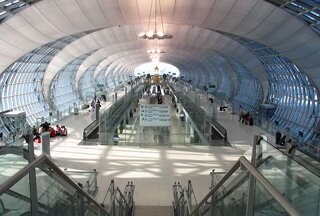
Located about 25km east of downtown Bangkok, Suvarnabhumi International Airport is one of the busiest airports in Asia and a major air cargo hub. |
Thai police say they have arrested an Iranian national for the possession of over five kilograms of meth when entering Bangkok from the Suvarnabhumi International Airport.
Customs officials on Tuesday revealed that a 47-year-old man had been detained at Suvarnabhumi airport after arriving from Istanbul on a Turkish Airlines flight on Monday afternoon.
He was handed to police after airport officials found 5,065 grams of methamphetamine, worth around 676,470 dollars, hidden in compartments of his luggage.
Also known as crystal, meth is a powerful, highly addictive stimulant drug that dramatically affects the central nervous system. Unlike drugs derived from plants - marijuana, cocaine, and heroin - it can be manufactured using a variety of store bought chemicals.
Last Thursday, Thai authorities arrested a 25-year-old Iranian he arrived from Tehran with 4,382 grams of meth, worth 588,000 dollars.
|
| Jailed Welshman hopes for appeal success |
AFTER five long years, a Welshman locked up in a notorious African jail for a crime he insists he did not commit has spoken for the first time about the gut-wrenching conditions he is forced to endure every day.
Alan Hodgson, 51, was sentenced to 20 years’ hard labour in Ghana’s Nsawam prison for his alleged involvement in a £79m drugs bust – the largest cocaine haul West Africa had ever seen.
To this day, the dad of one claims he is the victim of a tragic miscarriage of justice – and says the date stamp on his passport proves he was still at his home in Carway, Carmarthenshire, when the crime was committed.
Numerous appeals have failed – and the outlook for the next 15 years is bleak unless Ghana’s Supreme Court can grant him a reprieve next month.
|
| Aussie appears in court on Hong Kong murder charge |

Kelsey Mudd has been charged with murder after a taxi crash. |
An Australian man has appeared in a Hong Kong court charged with the murder of a city taxi driver.
Kelsey Lord Michael Mudd, aged 22, appeared at Eastern Magistrates' Court today charged with the murder of the 58-year-old driver in the early hours of Saturday morning.
Mudd, dressed in a navy blazer, checked shirt and khaki trousers, confirmed his name and did not enter a plea during the short hearing.
Hong Kong police have charged a 22-year-old Australian man with murder following a fatal traffic accident in which a taxi driver was killed.
He wore a surgical mask in the dock, and cuts were clearly visible on his face. Mudd's parents both attended court.
His request for bail was turned down and the case was adjourned until a later date.
According to the Sunday Morning Post, which cited police sources, Mudd and the driver had had a dispute shortly before the incident, in Hong Kong's central district.
|
| Merauke Five arrive back in Australia |
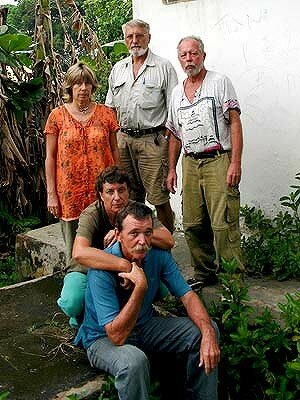 Five Australians detained for nine months by Indonesian authorities are celebrating their first night back on home soil after finally being allowed to leave the troubled province of Papua. Five Australians detained for nine months by Indonesian authorities are celebrating their first night back on home soil after finally being allowed to leave the troubled province of Papua.
First on the agenda were beers and meat pies, followed by a night watching the State of Origin rugby league match - if they could stay awake that late.
"I feel like a goldfish that has escaped a pool of piranhas," Pilot William Scott-Bloxam told AAP shortly after touching down on Horn Island, in the Torres Strait, on Wednesday.
Mr Scott-Bloxam, his wife Vera and friends Keith Mortimer, Hubert Hofer and Karen Burke, all middle-aged residents of the Torres Strait were detained by Indonesian authorities after flying to the Papuan town of Merauke without visas last September.
The so-called "Merauke Five" spent almost two months in rat-infested immigration detention before being released to a local house, only later to be moved to the local prison after being sentenced to between two and three years' jail.
Indonesia's Supreme Court this month overturned the decision but it took another fortnight of waiting for their official clearance to leave.
"It's hard to imagine that you end up in the highest court in the land for a misdemeanour case," Mr Mortimer said.
"We were all naive in thinking the system would look after us and it never did.
"At the end of it, it was the Australian government, the Australian people and the Australian media that got us out."
|
| Ex-ABC correspondent Lloyd released |
 Former ABC foreign correspondent Peter Lloyd has been released from Singapore's Changi prison. Former ABC foreign correspondent Peter Lloyd has been released from Singapore's Changi prison.
Lloyd was arrested last July on drug offences and has been in prison since December last year.
He was sentenced to 10 months in prison for possessing the drug 'ice' and drug paraphernalia.
A source close to Lloyd says his sentence was reduced due to good behaviour.
Lloyd said he resorted to using drugs after covering traumatic events such as the Bali bombings and the Boxing Day tsunami for the ABC.
It is not yet known if he will return to Australia.
|
| 'Mum's free': Family celebrates Kuwait jail release |
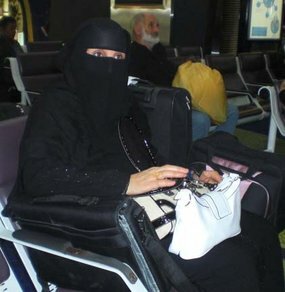
Nasrah Al Shamery is due to arrive back in Australia at the weekend. |
The family of an Australian woman jailed for the past five-and-a-half months in Kuwait is celebrating after a surprise decision by Kuwaiti authorities to deport her.
Nasrah Al Shamery, 44, was sentenced in April to two years' jail for assaulting the ruling Emir of Kuwait.
The charge stemmed from an alleged insult against the Emir after arriving at Kuwait International Airport with her family on holiday.
Mrs Al Shamery always maintained her innocence and there was an appeal last week, but the reason for the sudden deportation is not clear.
Mrs Al Shamery is due back in Australia at the weekend.
Her family, who live in Sydney, hoped she would be deported but were not expecting it.
One of Mrs Al Shamery's seven children, Ahmad Al Shamery, says he did not expect this decision.
"They said 'mum's free' and in a couple of days she will be here," he said.
Ahmad says his family and the lawyers attempted to appeal the jail sentence, but they had little confidence in the system.
He says at this stage no-one know actually knows why she is being released.
|
| Australian beer mat mother Annice Smoel walks free in Thailand |
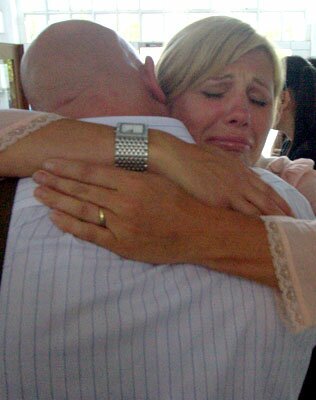
Free at last ... Annice Smoel is greeted by her husband Darren. |
IT took 18 days, an international outcry and a little leverage from the local Thai Governor - but Aussie mum Annice Smoel is finally coming home.
Mrs Smoel, who was unable to leave Thailand after being accused of stealing a beer mat when a drunken prank went wrong, was given a six-month suspended jail term and a 1000 baht ($38) fine in return for a guilty plea yesterday.
She was last night preparing for an emotional reunion with the four young daughters she hasn't seen for more than a fortnight.
"I don't know exactly how it all happened today," Mrs Smoel said.
"I think it was a combination of my lawyers here, my lawyers in Australia and my Government and the Thai Government.
"The Governor has apologised to me and been very kind. He seems like a lovely man. He has really looked after me."
Phuket Governor Wichai Praisa-nob paid Mrs Smoel's fine as an act of good faith. It is believed he intervened after being contacted by Thailand's Ministry of Tourism and the Foreign Ministry.
Until yesterday, Mrs Smoel feared she would spend at least the next four months in Thailand until a trial and possibly up to five years in prison if convicted.
But in return for her freedom, Mrs Smoel pleaded guilty.
|
| Lao government continues to hold Hmong refugees hostage |
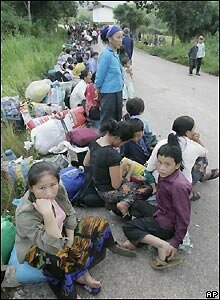 Yesterday, the Lao state-controlled newspaper Vientiane Times quoted the Lao Foreign Ministry spokesman criticizing Thailand for its recent offer to allow 158 UNHCR-recognized Hmong refugees resettlement in third countries. The offer was made last week while Thai Foreign Minister Kasit Piromya was in Washington, DC meeting with US Secretary of State Hillary Clinton to discuss this very sensitive issue. Yesterday, the Lao state-controlled newspaper Vientiane Times quoted the Lao Foreign Ministry spokesman criticizing Thailand for its recent offer to allow 158 UNHCR-recognized Hmong refugees resettlement in third countries. The offer was made last week while Thai Foreign Minister Kasit Piromya was in Washington, DC meeting with US Secretary of State Hillary Clinton to discuss this very sensitive issue.
The Lao FM spokesman belittled Thailand’s Foreign Minister for making such a statement saying he found it hard to believe that “a senior diplomat with much experience in foreign affairs would make such remarks.” This is an amusing comment by the Lao FM spokesman considering that deporting this group of UNHCR-recognized refugees is in clear violation of international refugee law.
For over 29 months now, the Lao government has basically been blackmailing Thailand into repatriating this group of Hmong refugees held at Nong Khai jail. On January 30, 2007, during a failed deportation attempt, Lao authorities were allowed up into the Hmong refugees cell area and gassed the resistant Hmong with an unidentified chemical agent. Those exposed to the chemical, including some young children, were sick for months later having chest pain, headaches, and difficulty breathing in their sleep.
Due to international outrage over the incident, which blatantly defied international refugee law, Thailand softened up and made a generous offer of allowing the group resettlement in third countries. The United States, Australia, Canada and the Netherlands all stepped forward agreeing to resettle the group. Then just days later, Thailand reneged on its promise due to a huge amount of pressure from the Lao government who threatened not to accept the remaining 8000 or so Hmong refugees remaining in Huay Nam Khao camp if the Thais allowed the 158 to go to third countries.
Now, well over two years later, Hmong parents and their small children remain held hostage under torturous-type living conditions until they “volunteer” to return. The Lao government is at it again, putting pressure on Thailand to bar these 158 from resettlement in third countries boldly stating that these countries must seek official permission from the Lao government and that they must be returned first.
How is it that a tiny country like Laos can get away with such a giant breach in international law while superpowers like the United States remain ominously quiet? The tortured and suicidal Hmong refugees in Nong Khai jail are waiting for you to step up to the plate.
|
| Aussie mates in Thai jail nightmare |

Jacob McGrath (left) and Paul Johnson (right), are in a Thai prison. |
TWO young Australians, best mates since primary school, have been locked up in a Thailand jail after their dream holiday turned into a nightmare.
Jacob McGrath and Paul Johnson, both 22 from Yamba in northern New South Wales, had saved hard for 18 months to go on a fun-filled two-week trip to Thailand.
But on March 26, the day they were due to fly home, the Australians were arrested by Thai police and charged with making a false statement.
Police said that items the Australians claimed had been stolen – including a laptop, iPod, sunglasses and digital camera – were later found by officers during a search of their hotel room.
Family members back in Australia said details of the subsequent investigation and hearing in a Chiang Mai court were sketchy, but the pair pleaded guilty to the charge.
The Sunday Mail believes the use of an interpreter after the pair's arrest led to communication problems and a misunderstanding of Thai law.
Mr McGrath and Mr Johnson were sentenced to two months in the city's feared prison, where their heads have been shaved and they share a cell and open toilet with up to 35 other inmates.
|
| Aussie caught with drugs faces 10 years in Bali jail |
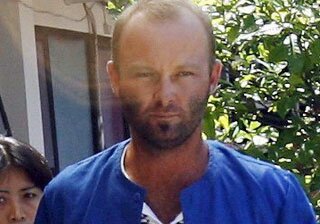
Jason McIntyre |
The intention of the suspect was to have the hashish for his own use. - Bali Police Drug Squad Colonel Kokot Indarto
An Australian pearl farmer faces up to 10 years' jail after he was allegedly caught with hashish outside a Bali bar.
Jason Scott McIntyre, 33, was arrested outside Crusoes Bar in Kuta in the early hours of Monday carrying about five grams of hashish, Bali police allege.
McIntyre will be charged with drug possession, which carries a maximum penalty of 10 years' jail.
"The intention of the suspect was to have the hashish for his own use," Bali Police Drug Squad Colonel Kokot Indarto said.
"The defendant has not had the chance to use it."
Charges were expected to be laid over the next few days.
|
| Guantánamo Detainee Phones Al Jazeera From Prison |
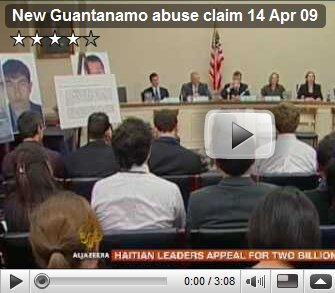 Given the opportunity to make a phone call from the U.S. detention facility in Guantánamo Bay, Cuba, a detainee awaiting release reportedly phoned Al Jazeera to complain about his treatment. Given the opportunity to make a phone call from the U.S. detention facility in Guantánamo Bay, Cuba, a detainee awaiting release reportedly phoned Al Jazeera to complain about his treatment.
In a video report (embedded above) posted on the Arab broadcaster’s English-language Web site on Tuesday, Mohammed El Gharani (whose name is transliterated differently by Al Jazeera) told a journalist for Al Jazeera, Sami al-Hajj, who was himself detained for six years in Guantánamo, that he had recently suffered abuse from guards at the prison.
According to Al Jazeera, Mr. Gharani said that guards had used tear gas on him when he refused to leave his cell and he had been beaten. The text of a written report on Al Jazeera’s Web site says that the detainee “said in a phone call to Al Jazeera that the alleged ill-treatment ’started about 20 days’ before Barack Obama became U.S. president and ’since then I’ve been subjected to it almost every day.’”
Mr. Gharani’s claim that he was abused at the detention facility in recent months echoes a statement by a detainee who was released to British authorities. In an interview with a British newspaper, Binyam Mohamed, who was released from Guantánamo in February, said that the election of President Obama did not immediately mark a change for the better for detainees. Mr. Mohamed told The Mail:
Since the election it’s got harsher. The guards would say, yes, this place is going to close down, but it was like they wanted to take their last revenge.
As reported in The Times in January, Judge Richard J. Leon of Federal District Court ordered the military to release Mr. Gharani after reviewing his case. According to that report:
The military accused the man, Mohammed el Gharani, of being part of Al Qaeda, working for the Taliban and fighting American forces in Afghanistan. Mr. Gharani is a Chadian who has lived in Saudi Arabia. Judge Leon said the accusations were based on testimony from other Guantánamo Bay detainees, which he found unreliable.
|
| Pardoned by Thai monarchy, Australian writer returns home |
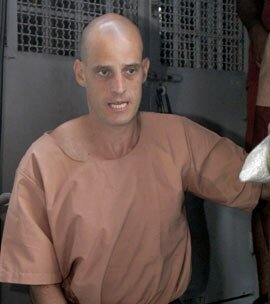
Harry Nicolaides — seen here at Bangkok's criminal court on Jan. 19 when he was sentenced to three years — spent more than five months in a Thai jail before being pardoned on Thursday. (Apichart Weerawong/Associated Press) |
An Australian writer, sentenced to jail in Thailand for insulting that country's monarchy, has been pardoned and whisked back to his country after spending more than five months behind bars.
"[I am] bewildered and dazed — nauseous," Harry Nicolaides, told the Australian Broadcasting Corp. on Saturday.
"I've been crying for eight hours — I learned only a few minutes before boarding my flight that my mother has suffered a stroke."Harry Nicolaides — seen here at Bangkok's criminal court on Jan. 19 when he was sentenced to three years — spent more than five months in a Thai jail before being pardoned on Thursday.Harry Nicolaides — seen here at Bangkok's criminal court on Jan. 19 when he was sentenced to three years — spent more than five months in a Thai jail before being pardoned on Thursday. (Apichart Weerawong/Associated Press)
The writer, 41, was arrested last August and sentenced to three years in prison in January for insulting King Bhumibol Adulyadej and the crown prince in a passage in his 2005 book, Versimilitude, which sold only seven copies.
Under Thai law, insults against the monarchy result in sentences of three to 15 years behind bars.
|
| Free Roy Bennett from Zimbabwe’s Mutare Jail |
 On Friday the 13th February 2009 Roy Leslie Bennett was arrested and charged with Treason in Harare. We call for the urgent release of Mr Bennett. Mr Bennett should be allowed to take up his ministerial post to help revive Agriculture immediately. The angels of suppression should accept that the winds of change are unstoppable. On Friday the 13th February 2009 Roy Leslie Bennett was arrested and charged with Treason in Harare. We call for the urgent release of Mr Bennett. Mr Bennett should be allowed to take up his ministerial post to help revive Agriculture immediately. The angels of suppression should accept that the winds of change are unstoppable.
The Junta keeps on flip flopping about the charges that Mr Bennett faces. It is inspiring to hear that Mr Bennett is in good spirits and he sends a message to all Zimbabweans through his lawyer "Whatever these challenges, if we remain unwaveringly dedicated, we will achieve peace, freedom and democracy in our life time - believe me,"
|
| International Community ignores the torture of 91 children |
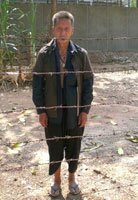 158 Hmong UNHCR Refugees are detained in the Immigration Detention Centre Nong Khai, Thailand. They have been there for 800 days - waiting to be relocated to a Third Country. 158 people including 91 children are locked up for 22 hours a day in dirty cramped, windowless spaces. 158 Hmong UNHCR Refugees are detained in the Immigration Detention Centre Nong Khai, Thailand. They have been there for 800 days - waiting to be relocated to a Third Country. 158 people including 91 children are locked up for 22 hours a day in dirty cramped, windowless spaces.
PLEASE TELL ALL YOUR FRIENDS TO PROTEST THE DETENTION OF THESE INNOCENT CHILDREN. THIS FORCED DETENTION OF CHILDREN GOES AGAINST ALL THE RULES KNOWN TO LAW AND CIVILISED MAN.
Tell your Friends, Politicians, International Organisations - tell the World. Please!
For more information Google: 158 Hmong Refugees in Nong Khai Detention Centre.
It is a very Political issue for UNHCR, IOM, American, Australian, Thai and Laos Governments – but while bureaucrats delay these people are LOCKED UP 22 HOURS A DAY. It has to be seen to be believed. The adults are stressed and trying to remain controlled for the sake of the children. They are all registered Refugees with UNHCR, but because of International Politics they are being denied the right to travel to a Third Country. They fear being repatriated to Laos and further oppression.
Please tell everyone you know so that they too can ask questions and help move all the detainees, every man, woman and child, to a deserved, and just, freedom.
|
| Australian prefers Thai jail to home |
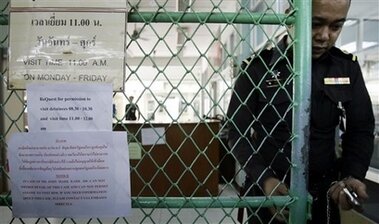 A MELBOURNE man who has been living in shocking conditions in a crowded Bangkok immigration jail cell for more than four years is refusing to accept Australian Government help to return home. A MELBOURNE man who has been living in shocking conditions in a crowded Bangkok immigration jail cell for more than four years is refusing to accept Australian Government help to return home.
Colin Hansch, 61, has told Thai authorities he would rather stay in jail than return to Australia, even though he has only a mat to sleep on and receives a small daily serve of rice and soup.
"I've not been back to Australia for 30 years. I don't want to go back, I've got nothing to go back to," he said.
Mr Hansch, a computer engineer who left Melbourne in 1967, is worried he will not be able to obtain a passport to travel overseas again if he accepts the offer. It is believed he wants to be able to visit Malaysia or Cambodia.
"I think they [Australia] don't want to give me a passport … they don't want to set a precedent giving a passport to somebody while they are in custody," he said.
#A spokesman for the Department of Foreign Affairs in Canberra said Mr Hansch had repeatedly rejected an offer from the embassy in Bangkok to issue a limited-validity document to let him return home immediately.
Mr Hansch has been held at the immigration centre in Bangkok, just around the corner from the Australian embassy, since September 2004. He was transferred there, supposedly pending deportation, after serving two years in a Bangkok jail for assault causing serious bodily harm, which related to a dispute with a bar girl in the beach resort of Pattaya.
|
| Egypt could jail Australian dealer for 15 years |
 AN AUSTRALIAN antiques dealer has been arrested in Egypt for allegedly trying to smuggle two 2300-year-old animal mummies and religious figurines out of the country. AN AUSTRALIAN antiques dealer has been arrested in Egypt for allegedly trying to smuggle two 2300-year-old animal mummies and religious figurines out of the country.
It is believed Frank Bottaro, 61, who runs BC Galleries in Armadale, Melbourne, was on his way to Thailand on Tuesday when he was picked up at Cairo International Airport.
A security official became suspicious of the figurines that were allegedly wrapped as gifts and placed amid souvenir ceramic pots in his suitcase.
A Department of Foreign Affairs and Trade spokeswoman confirmed yesterday that an unidentified 61-year-old was arrested for allegedly smuggling antiquities but had yet to be charged.
She said that, under Egyptian law, he could not be charged until he had appeared before a magistrate, and Egyptian courts were shut for several days during Christmas holidays.
She said officials were providing consular assistance to the man and his family in Cairo and Canberra.
A separate source later confirmed the man's name was Frank Bottaro.
The charge of smuggling antiquities carries a maximum jail term of 15 years.
|
| Help to find Ryan Chambers - Last Seen in India |
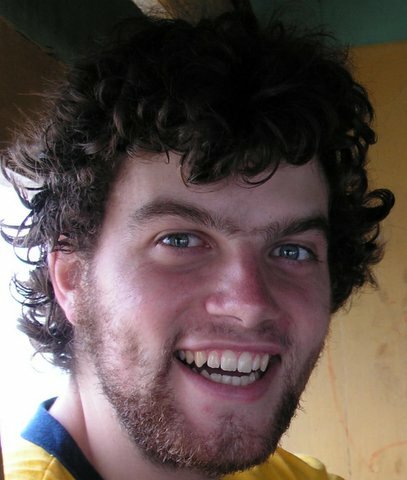 This is the story of our youngest son, Ryan (DOB 20/3/1984) who has been missing in India since 24 August 2005. This is the story of our youngest son, Ryan (DOB 20/3/1984) who has been missing in India since 24 August 2005.
We hope that this will help find him. It will certainly enable many more people in India to become aware that Ryan is missing and that he has a family in Australia desperate for some news of him. This includes his parents of course but also his older brothers Aaron and Jarrad and his extended family.
Many things have been tried- Australian authorities, Private investigator, Rotary International, Coca Cola India, State Bank of India and many new friends have assisted our search. Facebook has also been used extensively and this medium has resulted in two unconfirmed "sightings."
Psychics have also offered advice but no results have been forthcoming.
A few "sightings" have been reported over the past 3 years but never able to be confirmed.
Meanwhile, people around the world wait for word that Ryan has been found.
Please Click to Email us and let us know if you have any information on Ryan - your details can remain confidential should you wish
|
| Australian man Shane Demos jailed for drugs in Bali |
 AN Australian man convicted of drug use in Bali has been jailed for eight months. AN Australian man convicted of drug use in Bali has been jailed for eight months.
Sydney man Shane Christos Demos, 37, was today found "officially and convincingly guilty" of using hashish and heroin.
Following a trial in Denpasar District Court, Chief Judge Nyoman Sutama imposed a sentence of eight months.
Demos had acted against the Indonesian Government's efforts to fight drug abuse in the country, Judge Sutama said.
Prosecutors had sought a years' imprisonment.
Demos was arrested in September outside a shop in Bali's Double Six nightclub area.
|
| AGO to execute five convicts |
JAKARTA: The Attorney General's Office (AGO) is preparing to execute five convicts who are on death row before the end of the year.
Assistant attorney general for general crimes Abdul Hakim Ritonga said one of the five convicts was a Nigerian, who had been found guilty of a drug-related crime. The rest are Indonesians.
Ritonga, however, denied reports that premeditated murder convict Gunawan Santosa was among the criminals who would soon face a firing squad.
"(Gunawan) is still appealing," Ritonga said.
Also, the execution of three members of an Australian drug ring known as the "Bali Nine" was still hanging in the balance due to their case review appeal, Ritonga said.
The executions will take place on Nusakambangan Island, where several maximum security prisons are located and where the three Bali bombers were executed early this month. -- JP
|
| Burma democracy activists sentenced to 65 years in prison. |
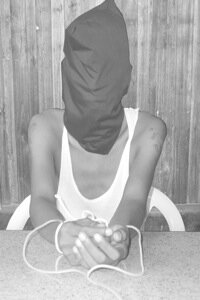 Today the regime sentenced 14 leading democracy activists in Burma to 65 years in prison. If they are forced to serve their full terms, they will die in jail. The sentences were handed down at around 1pm, behind closed doors in Insein prison special court in Rangoon. Family members were not allowed to attend the hearing. The sentences today relate to only five charges. They are all charged with a total of 21 charges and face further sentences as their trials continue. Today the regime sentenced 14 leading democracy activists in Burma to 65 years in prison. If they are forced to serve their full terms, they will die in jail. The sentences were handed down at around 1pm, behind closed doors in Insein prison special court in Rangoon. Family members were not allowed to attend the hearing. The sentences today relate to only five charges. They are all charged with a total of 21 charges and face further sentences as their trials continue.
Those sentenced are all prominent members of the 88 Generation Students group, which led the peaceful demonstrations last September.
|
| High flyer who ended up in jail |
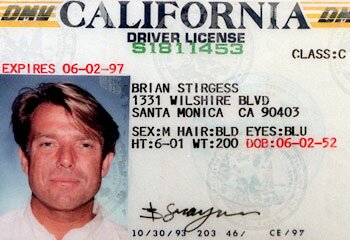
Fake licence: Brian Burgess
|
BRIAN Burgess came to Australia under the British Boy's Movement for Australia aged 17 in 1969.
His first job was as a labourer and his second as a bank teller.
He then he got a job with Ansett reservations and was promoted through the ranks.
He was office manager of a new Ansett office in Sydney before becoming Australian sales manager of Continental Airlines.
After this he bought a travel agency, which he sold for $500,000, and went into the property market.
This was short-lived when the recession hit and the bank foreclosed on a loan.
In his early 40s, Burgess became depressed, began drinking, became bulimic and a cocaine user and fell into debt, losing his $1.7 million home.
He saw importing cocaine as a way out, and in 1996 he pleaded guilty to importing 2kg of cocaine with a street value of $656,000 and was sentenced to four years in prison.
An international human rights group threatened to take the Federal Government to the European Court of Human Rights over his deportation to Britain.
|
| Aussie arrested in Bali refusing help |
 A 37-year-old NSW man has been arrested in Bali on charges of possessing heroin and marijuana. A 37-year-old NSW man has been arrested in Bali on charges of possessing heroin and marijuana.
Shane Demos was arrested on Tuesday morning in the Seminyak nightclub district, with police allegedly finding a packet of heroin and another of marijuana.
It is believed neither drug was in sufficient quantity to justify charges of drug dealing which carries a death sentence under Indonesian law.
Mr Demos has refused consular support from the Department of Foreign Affairs and Trade, though a spokesperson confirmed they were ready to help should he change his mind.
|
Narcotics Prison to Be Built in Bangli
US$1 Million Set Aside to Build Facility to Move Drug Offenders Out of Bali's Kerobokan Prison. |
(9/20/2008) NusaBali reports that a custom-built penitentiary for convicted narcotic offenders will soon be constructed on a 2 hectare site in Bangli starting in 2009.
To be built in close proximity to Bangli's current mental health asylum, an allocation of Rp. 9 billion (US$1 million) has been set aside to construct a prison to help house the 400 narcotics offender now imprisoned at Bali's Kerobokan prison. Those convicted of narcotic offenses represent more than half of the current inmates in Bali's main prison.
While little details are available on the new prison, government officials say they are intentionally placing the new prison in a location near Bali's main mental health facility. Those officials hope easy access to the mental health facility will assist jailers in their efforts to rehabilitate convicted drug users.
|
| Priest relives firing squad deaths for court |
THE fate facing condemned Australian drug smugglers and the three Bali bombers was played out in grisly detail as the court hearing the bombers' death penalty challenge was yesterday given a firsthand account of an Indonesian firing squad.
A Catholic priest, Charlie Burrows, softly echoed the moans of the two Nigerian drug traffickers as their lifeblood ebbed away near midnight on June 26.
"They were moaning again and again for seven minutes," he told Indonesia's Constitutional Court. "I think it is cruel, the torture."
Desperate to provide some sort of consolation, Father Burrows sang Amazing Grace as the pair slowly died from their bullet wounds. They were pronounced dead 10 minutes after being shot.
|
| Lao officials attempt discreet visit to Hmong refugees held at Nong Khai IDC |
 On September 16, four plainclothes Lao officials arrived at Nong Khai IDC trying to get access to the 158 Hmong refugees still being held there. Two of the officials happened to be ethnic Hmong and were able to question one elderly refugee before being asked to leave by Thai prison authorities. On September 16, four plainclothes Lao officials arrived at Nong Khai IDC trying to get access to the 158 Hmong refugees still being held there. Two of the officials happened to be ethnic Hmong and were able to question one elderly refugee before being asked to leave by Thai prison authorities.
The plainclothes Lao officials questioned the old man in his native Hmong language, asking him where he came from and why he lived in the jungle. They asked him where his wife and children were currently living and what the Thai authorities had told the Hmong refugees regarding prospects of their future.
These types of sneaky visits by Lao officials have been an ongoing problem for the Hmong refugees. On past occasions, Lao officials have been allowed free access to the Hmong and even brought up to their second floor cells. They’ve even been allowed to photograph and freely question the Hmong refugees.
On the other hand, UNHCR, western diplomats, human rights groups, and journalists have all been forbidden access to these Hmong. This obvious double standard has enraged the Hmong refugees, who feel they have absolutely no recourse to justice.
Meanwhile, just days earlier on September 11, the Lao government had invited a high-level Thai military delegation to visit Ban Pha Lak, the highly promoted Hmong returnee village. Whisked in by Lao military helicopter, Thai officials and some invited local news media were carefully escorted through the village by the Lao government appointed village chief. Not a jungle returnee himself, but rather a long-time trusted communist official posted there, he painted a very positve view on the progress of this new settlement site and how happy the Hmong returnees were.
|
| Mentally ill 'held like animals' |

Yatala Prison |
MENTALLY ill people are being held within South Australian prisons in conditions unfit for animals, a legal inspection team says.
The SA Law Society's Human Rights committee has described the treatment of mentally ill prisoners as a "scandal which must be seen to be believed".
It has told a government committee that none of the prison facilities in SA "is able to provide adequate psychological or other longer term counselling and treatment for the mentally ill".
"The absolute failure in the treatment of the mentally ill in the prison system has now reached the stage of being an unmitigated disaster and crisis," its report says.
The report was written for the Correctional Services Advisory Council by five senior lawyers who last month visited the Adelaide Remand Centre, Yatala Labour Prison, Northfield Women's Prison and City Watch House amid widespread concerns about chronic overcrowding.
It calls for the urgent upgrade of Yatala's maximum-security G-Division and its medical infirmary, describing them as unfit for humans.
|
Prisoner-swap hopes rise for teen in Cambodia
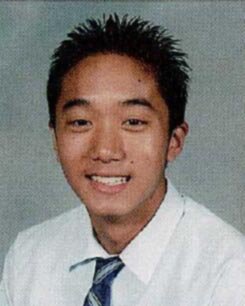 SCHAPELLE Corby is not the only prisoner inching closer to home. An Australian schoolboy sentenced to 13 years in a Cambodian jail at the age of 16 is a step closer to a return, after the Cambodian Government notified Canberra of its willingness for a prisoner-exchange treaty. SCHAPELLE Corby is not the only prisoner inching closer to home. An Australian schoolboy sentenced to 13 years in a Cambodian jail at the age of 16 is a step closer to a return, after the Cambodian Government notified Canberra of its willingness for a prisoner-exchange treaty.
Sydney teenager Gordon Vuong, now 17, is housed in a squalid cell in Phnom Penh's Prey Sar prison, having been convicted for attempting to smuggle 2.1 kilograms of heroin to Australia in January last year.
Family and friends of the Christian Brothers, Lewisham, student claim he was coerced into the drug run by two men — a 47-year-old Cambodian man and a 25-year-old Cambodian-born Australian — who were arrested along with him.

|

|
Photos and information archived from services named where possible for information, news reporting and historical non profit use only.
WE DO NOT ACCEPT DONATIONS OR COLLECT MONEY FOR OR ON BEHALF OF PRISONERS OR THEIR FAMILIES.
|